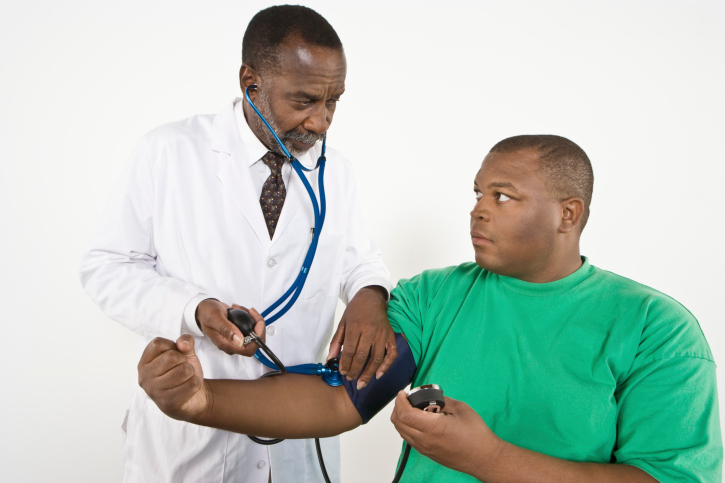A list of 8 important medical tests and screenings for men in 2022
In the previous year, men are 24% less likely than women to have visited a doctor, according to the Agency for Healthcare Research and Quality (AHRQ). Both men and women need regular medical checkups and screenings, but we have compiled a few screenings and checkups for men in 2022. You can maintain your health through these visits. When diseases and ailments are detected early, they can be effectively treated.
The Difference Between Medical Checkups and Screenings?
There is a difference between a medical examination and a screening.
In a medical checkup, your doctor assesses your health. Physicals and well checks are sometimes called checkups. You will be examined by your doctor during a checkup and your health will be discussed. We’ll discuss your symptoms, your medications, and your daily routine.
Medical screenings, diseases, and disorders can be detected before symptoms appear. The screening process includes blood pressure measurements, blood tests, and colonoscopies. Your doctor can perform some screenings in the office. In some cases, specialized clinics or hospitals are the only places to obtain them.
Health screenings and medical checkups for men in 2022

Patient is examined by the doctor
It is determined by a man’s age, health, and personal risk factors for particular diseases how many checkups and screening tests he needs and when he needs them.
Blood tests are used to determine triglyceride and cholesterol levels. Cardiovascular disease may be associated with high levels. Blood tests are recommended for you:
Getting a checkup every five years is recommended for people over 45 who have a normal risk of heart disease. Once you turn 40, you should get a checkup every year if you have a family history of heart disease.
Obesity tests: Excess weight puts you at risk of heart disease and diabetes, among other health issues. You should have your BMI and waist measurement checked every 2 years by your doctor if you are under 40 years of age. For those over 40, it should also be checked once a year.
Electrocardiograms (ECGs) detect heart problems in a noninvasive and painless way. As the heart contracts, it produces electrical activity. If you are over 50 years old, your doctor may recommend an ECG every two to five years depending on your health and medical history. You should tell your doctor if you notice any irregularities in your heartbeat or if they appear when you are not exercising.
1. Prostate cancer screening
Detecting prostate cancer before symptoms appear is the purpose of prostate cancer screening. There are two ways to detect prostate cancer. During a digital rectal exam (DRE), your doctor feels for abnormalities in your prostate gland with a gloved finger. Blood tests used to measure prostate size include prostate-specific antigen (PSA) tests. However, neither test reveals what abnormalities have been found in the prostate gland. The results of the test will require further testing if they are positive.
Do you need one? If so, when? Ask your doctor when and if you should be screened for prostate cancer. In order to ensure the most effective results, the American Urological Association (AUA) recommends that each man undergo personal testing. Men between the ages of 55 and 69 are most likely to benefit from prostate cancer screening, according to the AUA.
Men in this age bracket should also speak to a general practitioner or urologist about the possible benefits and drawbacks of screening.
It is recommended that African American men younger than 55 who have a family history of prostate cancer or who are of African descent talk to their doctor before getting tested for prostate cancer. Over 70-year-old men should not be screened.
2. Performing STD (Sexually Transmitted Disease) screenings
The purpose of STD screening tests is to detect infections from sexual contact before symptoms appear. An STD test is also known as an STI test (sexually transmitted infection). There is a small blood draw required.
If you need an STD screening, talk to your doctor about what you should do. Screening may be necessary if you have several risk factors, such as multiple sexual partners, intravenous (IV) drug use, or sex with other men. If you do not have any risk factors, you do not need STD screening. Tests for HIV and syphilis are recommended for males with risk factors, according to the US Preventive Services Task Force.
3. Cholesterol and blood pressure
An assessment of your cholesterol level is called a cholesterol test. Heart disease and stroke risk can be determined by this test. A blood pressure check aids in diagnosing a variety of diseases and ailments besides measuring high blood pressure (hypertension). The results of your high blood pressure treatment can be determined by checking your blood pressure. These tests are essential since elevated cholesterol and high blood pressure often do not cause symptoms. Additionally, they increase the risk of heart attack and stroke.
Obtaining a fasting lipoprotein profile every five years is recommended by the American Heart Association starting at age 20. The Department of Health and Human Services (HHS) recommends checking a person’s blood pressure at least once a year if their blood pressure is normal (less than 120/80). At least once a year, you should have your blood pressure checked if you have high blood pressure (over 120/80).
4. Performing a colonoscopy
A colonoscopy involves the examination of the colon lining and rectum. In this procedure, a colonoscope is used. When colon and rectal cancer is at its earliest, most treatable stage, your doctor uses the colonoscope to detect it. You can see your doctor if you are experiencing digestive discomfort and if you have suspicious-looking spots that need to be removed. These symptoms include rectal hemorrhage, stomach pain, and irregular bowel movements.
What is the most appropriate time to have one? Colonoscopies are recommended for most people starting at age 50. It may seem like ten years have passed since the last test. The growth rate of colon and rectal cancer is slower, however. You may need more frequent colonoscopies if you have a high risk of colon and rectal cancer.
5. Density test for bones
How Does It Work?: Bone density is determined by a bone density test. Bone mass, which is a measure of bone strength, is the only way to diagnose osteoporosis. As a result of osteoporosis, brittle bones become weaker and are more likely to break. It is a common misconception that osteoporosis only affects women. Over the age of 50, osteoporosis can cause 1 in 4 people to break a bone. For determining bone density, dual-energy X-ray absorptiometry (DEXA) scans are commonly used. It is extremely crucial that you remain calm during this screening test.
In general, doctors recommend bone density tests for males over 70 years of age. A bone density test is recommended if you have rheumatoid arthritis, osteoporosis in your family, past fractures, or take steroids. Smokers and heavy drinkers may wish to take the test if they smoke or have smoked in the past.
Nigerians in their 30s should have these four health check-ups
6. Vision and hearing screenings
Testing your hearing involves determining how well you can distinguish between different tones. You will undergo a vision screening to find out how far you can see up close and away. In addition, you will be asked how well you perceive color and how far away you can see. Your vision can be screened for abnormalities before you become aware of any symptoms. High blood pressure, for example, can also be detected by them.
If you do not show signs of hearing or vision loss, the US Preventive Services Task Force (USPSTF) does not recommend routine screenings. A simple hearing test is also performed at the doctor’s office by many adults. Vision screenings should also be conducted at the age of 40, according to experts. You will be told how often you should return by your doctor depending on the results. It is wise to see your doctor if you experience new hearing or vision problems, regardless of your age.

7. Make sure you take proper care of your teeth.
During an oral health checkup, teeth are cleaned, oral health is assessed, and mouth X-rays are taken. You can maintain your chewing, speaking, and smiling abilities through these procedures. Your dentist can diagnose any illness that can spread to the rest of your body, such as dental cancer, gum disease, cold sores, and others.
Your oral health should be checked and your teeth should be cleaned once or twice a year throughout your adult life. It may be necessary to see your dentist more frequently if you have a chronic disease like diabetes. Without a dentist, you can find one on Healthgrades.
8. Aortic aneurysm screening in the abdomen
This procedure detects aortic bulges by screening for AAA (abdominal aortic aneurysms). Besides transporting blood from your heart to the rest of your body, the aorta is also an influential structural feature of your body. Through your abdomen, it supplies parts of your lower body. A burst of AAA can result in internal bleeding, shock, and even death if it is not treated immediately. For AAA screening, a part of your belly is evaluated with ultrasound.
The US Preventive Services Task Force recommends AAA screening for men between 65 and 75 who have smoked in the past.
In conclusion
-
Staying healthy requires regular health checks and screening tests.
-
In 2022, men will undergo many medical exams and checkups
-
You have the highest chance of successfully treating diseases and ailments if you detect them early.
-
Regardless of how you feel, see a primary care physician regularly for the rest of your life.
-
According to the results of your screening and your medical history, you may need additional screenings and follow-up appointments.